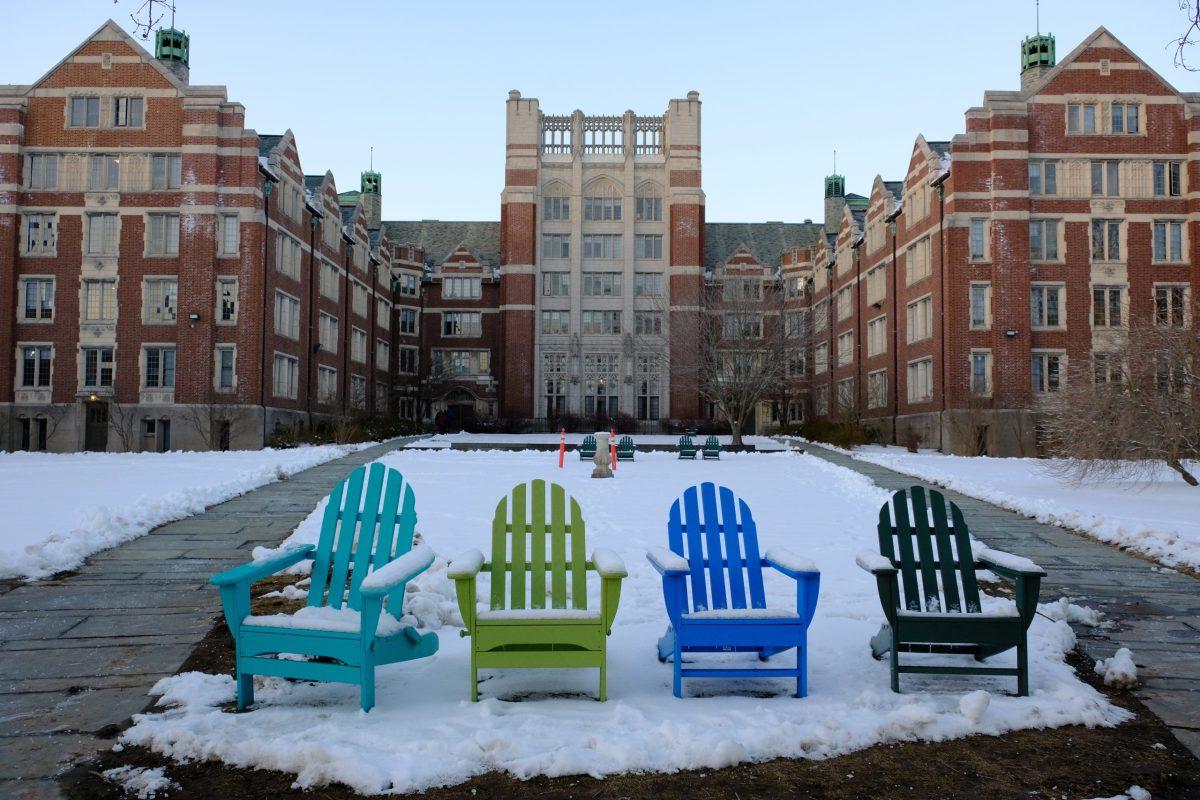Note: The students who were interviewed have been given pseudonyms to protect their identities, as well as their relationships with their Community Directors, House Presidents, fellow Residential Assistants and residents.
Wellesley Residential Life & Housing finished collecting applications for Residential Assistants (RA) and House Presidents (HP) for the 2023-2024 academic year on March 1. For the upcoming academic year, Residential Life & Housing has made changes to both student positions, for the purpose of “ensuring that a team approach is centered” and promoting “student wellness and balance,” according to a presentation from the Residential Assistant and House President information sessions.
Newly introduced for the upcoming year, the RAs will specialize in one focus area within their assigned residence hall. The four specialities are: Conflict Transformation, Communication and Logistics, Programs and Activities and Wellness.
Helen Wang, director of Residential Life and Housing, said that the specialties are inward facing and will not be advertised to non-RA students.
According to Wang, “The RA role across the nation has not evolved, but students have evolved so much. Students that work in ResLife cite this as one of the best jobs, but it’s also cited as the most stressful job. We haven’t utilized a team-based approach correctly.”
Wang clarified that the team undergoing more robust training in their respective specialties will help students in their professional development.
She said, “I know our RAs have often said to us that training feels a little light. This is designed for teams to have more skillsets and training, which they’ve asked us for. I think it’s going to be really awesome.”
While administration is enthusiastic about this change, students, particularly those currently working as Residential Assistants, have expressed dissatisfaction, especially with the Conflict Transformation specialty. According to the 2023-2024 Resident Assistant Roles and Responsibilities, some tasks that a Conflict Specialist may be responsible for include: “liasing with the Communications and Logistics Specialist on community care concerns and identifying new roommate pairings in need of an updated roommate agreement, utilizing active listening skills to triage, manage and refer peer-to-peer conflicts, [and] consulting with the Community Director to escalate higher level peer-to-peer conflicts.”
Wendy*, a student who has worked as a RA both for the past two years, said, “I think it’s such a silly idea. Last semester, I participated in a focus group, and we did mention that some RAs are better suited for certain roles. I do understand where the idea is coming from, but you’re going to have one RA who is basically a 19-22 year-old social worker.”
Another student, Wanda*, who has worked as an RA this academic year, echoed a similar sentiment, believing that the redefinition of responsibilities was well-intended but not aligned with student workers’ goals.
She said, “It’s been different from what was discussed in focus groups. When the other RAs were talking about it, they were more focused on the emotional burden, and when ResLife took it, they understood it as ‘How can we make this better for us administratively.’ I feel like it will further the burnout of RAs.”
In regard to these concerns, Wang said, “I feel remiss that the community at large is misinterpreting our reason for doing it. In no way shape or form would I ever create a role where one person is the Conflict Transformation Specialist. That’s not possible. Who would want that job? Instead, let’s think about how we can work as a team together, so the result feels less taxing.”
In response to the administration’s emphasis that the role will not expand, Wanda* reiterated, “Although it is a nice sentiment, in reality, it will probably be that RAs have to respond to these demands and up their time commitments which they don’t necessarily have the capacity to do.”
The job description for the House President also changed for this application cycle. In the presentation shown during Residential Assistant and House President information sessions, the following three changes made to the HP role were explicitly stated: HPs will take on a peer mentor role, rather than a supervision role; HPs will share the load of communicating with their halls; and HPs will not be required to hold biweekly one on one meetings with RAs.
Wang elaborated on the motivation behind this decision, “In the past, during conflict mediations, RA have reached out to their HPs and Community Directors (CD). In this model, they have somebody who is a peer who also has specialized training in conflict resolution. You can consult with your peers, therefore, we’re compressing the hierarchy a little bit. Part of this is a reaction and a reflection to what students have told us.”
Wang highlighted the goal of making the HP role less logistical and more creative, granting HPs the freedom to set the tone and culture for the community they wish to cultivate in their residence hall.
In response to the change in the HP role, Wanda* said, “Since the contract is changing to have the HPs in less of an advisory role, it puts CDs in a higher position of power, which I feel like will further the divide between RAs, HPs and CDs.”
When asked if there are plans to change the remuneration given the contract change, Wang responded, “The compensation structure is currently not slated to change moving forward. I think we always have room to ask questions about what the role entails because the changes in this role are not ‘more’, but that doesn’t change the conversations we always have about ensuring that students can focus on their RA/HP role without having to take on more jobs.”
Wendy* and Wanda* had issues with the remuneration for their work as an RA, this year and next year, given the changes in the contract.
Wanda said, “One aspect of the contract change that I’m disappointed about is that there hasn’t been a shift in pay. Right now, we receive half of our compensation as a stipend that goes to our financial aid, but the problem with that is it once you get the stipend, it messes with your financial aid. It feels like they aren’t viewing RAs as students, but just as workers.”
Wendy* concluded, “I do not believe I have ever been compensated enough for my work. The amount of hours I work and the amount I get paid are not congruent at all. I’ve calculated it before, considering that my hours fluctuate per week, and it has never been minimum wage. While it’s great to get some form of compensation, I deserve more.”




